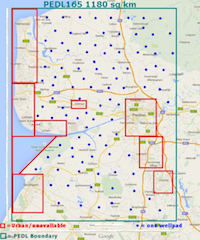Fracking and health issues
[A guest post by Alan Tootill]
The newly released preliminary results on health problems in just one Pennsylvania county allegedly due to fracking have just appeared.
The verdict appears to indicate there may be more problems due to air pollution that water pollution.
It’s worth quoting the central points –
“The project found 27 cases where people in Washington County believe they were hurt by nearby drilling – seven cases of skin rashes, four of eye irritation, 13 of breathing problems and three of headaches and dizziness. The skin exposures were from water and the other cases were from air. The numbers don’t represent a full survey of the area, just cases so far with plausible exposures.
The EHP group is trying to help those who have been exposed to drilling-related air or water pollution, toxicologist David Brown told The Associated Press, adding that they’re finding “an array of symptoms” in some people who live close to either wells or processing stations.
No doubt the results will be hotly disputed by the industry. But what implications might this have for the Fylde?
Washington County has a population of 208,000 people in an area of 2,220 square kilometers. An average population density of 94 per sq km.
Fylde and Wyre boroughs together have a population of around 184,000, in an area of 448 sq km. An average of 410 per sq km.
Let’s assume health problems scale up according to population density. this would mean rather than 27 people suffering, we would be taking about around 105 people.
But now let’s take the wells into account. In Washington County the figure quoted is 700 wells. In Fylde we might be talking 100 pads, say 10 verticals per pad, 3 horizontals per vertical. As an upper figure we could be looking at more, maybe 12 verticals per pad, or maybe 4 horizontals per vertical.
Let’s take for convenience a mid figure of 3,500 wells (counting the horizontals as wells but not the verticals).
It is reasonable to assume this number of wells will scale up the compressor requirement and air pollution, also the possibility of water contamination.
In which case we might be talking on a reasonably conservative basis of over 500 Fylde people with health problems due to fracking over the next decade or so.
These figures have ignored Blackpool, which is one of the most densely populated towns in the country, with a population of around 142,000 and a density of 4,060 persons per sq km. Factor that in and you would be talking treble the figure I quote.






























